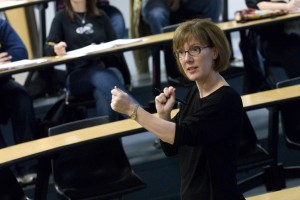
People don’t necessarily make better decisions when they are more informed. I think intuition is more important than information, most of the time. In the book, Blink, bestselling author Malcolm Gladwell talks about how people often make great decisions based on an inner feeling. It’s a really good read.
Anyway, I found this to be true (at least for myself) this semester.
I really like my Intro to Tax with Professor Jeri Seidman, not because I love learning about rules (or more appropriately, their exceptions) though the night, but because of the way they focus on preparing students for real work (and world) issues. For example, I was watching the MSNBC show, “Meet the Press” last week and David Axelrod, White House senior adviser, was talking about the some challenges associated with extending the Bush tax cuts. I appreciate some of the problems he was talking to a much larger degree now, more so because Professor Seidman had briefly talked about about them in class. And that feels good. Another speaker (whom I don’t remember now) was talking about why there there may be no real correlation between tax cuts and job creation, which I found pretty interesting as well. I ended up discussing some of these topics during an interview, and found myself really getting along with the person who was interviewing me! (Side note – regarding bringing politics into interviews – I would say…Please don’t do it!) However, the fact that I had an opinion was something that my interviewer really liked. And his responses and questions really helped me gauge the culture of the firm I was interviewing with. Basically, what I think I am trying to say is, I have found myself leaning towards firms for inexplicable reasons. People always talked about “culture-fit” and I thought that it was just a lot of nice sounding words. It’s not. Many of my classmates also talk about “gut feelings” and how they have helped make their decisions about which firms to join. I really believe that is what it boils down to for most people. Feeling comfortable.
So what is the culture at UT? Well, the culture is defined by the people here. And what words would I use to describe them?
Energetic? Yes, for sure.
Ethical? Yep.
Professional.
Fun.
But what makes faculty and students at UT stand out?
….Being here for three months, I would say it is the standards they strive for.
So, if you ever find yourself trying to make a decision for school, work or anything else…and you have some tough choices, try narrowing them down based on instinct. And if UT is one of those choices, just think to yourself: Do I want to be with people who set the bar high? If you answered yes, then you would fit right in!

